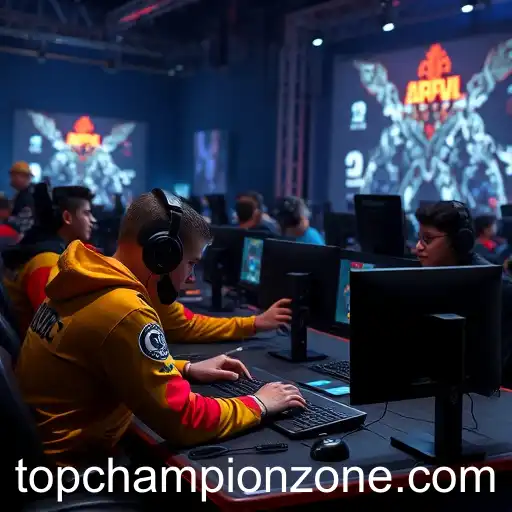
Exploration of the evolving dynamics in online gaming communities amidst technological advancements and socio-cultural shifts in 2025.
In recent years, online gaming communities have undergone significant transformations, driven by technological evolution and socio-cultural changes. The term 'championzone' has emerged as a focal point in the gaming landscape, representing not just an English game website but a larger movement towards competitive digital engagement and communal growth.
As we enter 2025, it's evident that these platforms are no longer mere leisure hubs. They've become sophisticated ecosystems where players interact, compete, and collaborate. The significance of platforms like 'championzone' lies in their ability to foster connectedness among gamers worldwide. Key to this shift is the advancement in technology, with faster internet speeds and more immersive gaming experiences becoming the norm.
Such developments have fueled an increase in the number of gamers participating in online tournaments and communities. These dynamics have been amplified by the rise of esports as a mainstream form of entertainment. Gaming platforms are increasingly seen as viable pathways to professional gaming careers, something unfathomable just a decade ago.
Moreover, there's been a noticeable trend towards inclusivity and diversity within these communities. 'Championzone' and similar platforms have been lauded for their efforts in creating spaces that welcome gamers of all backgrounds, championing initiatives that address gender balance and cultural representation.
The impact of these developments isn't constrained to the virtual world alone. Many gaming communities are actively contributing to influencer cultures, with top gamers becoming celebrities in their own right. This blending of virtual achievements with real-world recognition highlights the growing social significance of gaming in today's youth culture.
Looking ahead, the relationship between evolving technology, societal trends, and gaming communities is poised to deepen. As game developers continue to innovate, and digital platforms enhance user connectivity, the role of gaming communities will likely expand in shaping future digital interactions.




